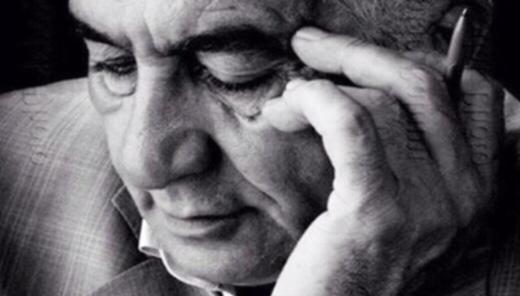"Fattah Amiri" is a proficient novel writer in the East part of Kurdistan. He is one of the first figures of the East part of Kurdistan who has begun to write Kurdish novels. He is the first writer who has published novels in Kurdish after "Peshmarga" by "Rahim Seifi Qazi".
This author was born in 1946 in "Manichar" village in Boukan. He finished his primary education in Mahabad. He got imprisoned in the "Mohammad Reza Shah" official prison in the 1970s due to political activities he used to take part in.
He wrote his novels based on pre-planned plots. His first novel, "Haware Barah" is about the time when there were lords oppressing their peasants according to its social form and time of the events. In this novel, Amiri has narrated the lifestyle of farmers and ranchers in the villages and countryside of Kurdistan very well. Both his characters and the setting of his novel are very good representatives of the original characters and atmosphere of Kurdistan at that time. On the one hand, he narrates the way ordinary people and their lords related to each other, and on the other hand, he talks about the oppressed life of the lower class of society who is represented by a character named "Yarah".
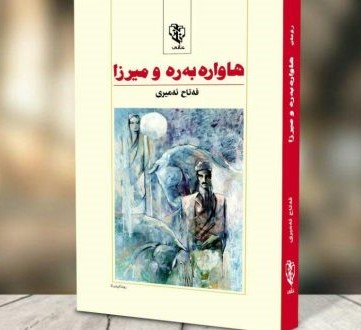
In his second novel named "Mirza" which is, in fact, the second part of his first work, "Haware Barah", Amiri moves forward and chooses another period of time to retail his story that is happening after the period of time in his first work. A period of time when people's awareness of the oppression they have been facing increases. The oppression narrated in Mirza’s novel consists of two aspects; people on the one hand, get more alert and conscious of their lords' tyranny gradually and they try to oppose them which is shown in people's resistance against their lords and on the other hand by introducing a literate and educated character like Mirza, he narrates another form of Kurdish people's attempt in facing the central political power.
The last image of Mirza’s narration is when Mirza rides his horse toward the mountains and leaves. From this point, he begins another form of struggle which is an armed struggle against the occupying authority, but the novel does not narrate this and the signs can lead the reader to this conclusion.
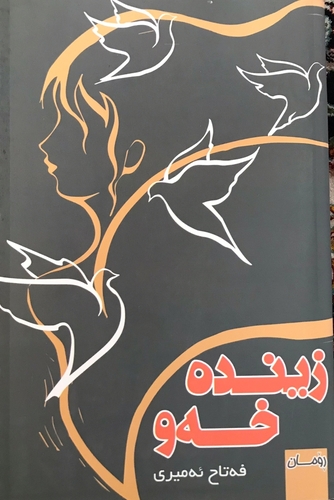
In his third novel, "Zinda Xew" (Living Sleep), Fattah Amiri emerges from the village and returns to the city, and recounts the life of Kurdish people in the city. This part, too, is a continuum of his previous narrations. Amiri retails a part of people's lives in this novel that has been dedicated to political activities and they have been imprisoned due to their political acts and their new situation in their life. Apart from this, he unfolds ordinary people's lives in the city. Political, romantic, and human relationships illustrate the modern life of the Kurdish people for the reader in this novel.
After "Zinda xew", Amiri published two related novels. The first one is "Gejalukah" (Thunder Storm) and the second one is "Xewn u Xeyal" (Dreams and Fantasies). These two novels are in fact the first and second volumes of the same novel because the characters and the events are the same in both of these works. That is, if there are a group of characters in the first novel, in the second one the same characters' daily life is being narrated. In fact, the main character of these novels is a person named "Choukal" and all the events in both of the novels are about this character's behavior and ideas i.e., the whole world of these two novels is about this character's life.
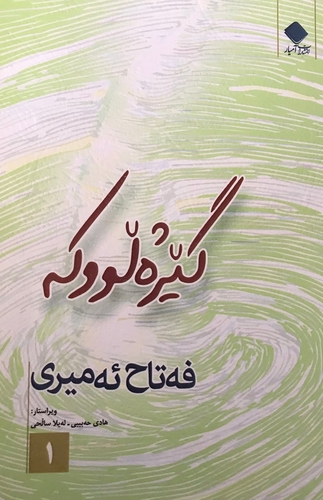
In the first novel, we see a teenage Choukal who is deeply in love with his cousin. He is a smart boy in his educational field. The village's priest is his teacher and all he can think about is his education and his cousin.
The author also unfolds the ordinary people's lives and their relationship with their lord, how they contact to people of the city, and the religious figures however, the focus of attention is on Choukal. In this part of the novel, Choukal gets convicted of murdering a person for he gets killed in Choukal's yard. He gets imprisoned for this and stays there for several years until he gets freed.
The second volume, or the second novel i.e., Xewn u Xeyal, continues the first volume's narration about Choukal who is out of prison now, and his love for a ghost named "Esmeralda". Although there are many minor stories within this part of the novel, and it is narrated in a chain of stories overlapping each other however, all these events happen to Choukal and they are about his life.
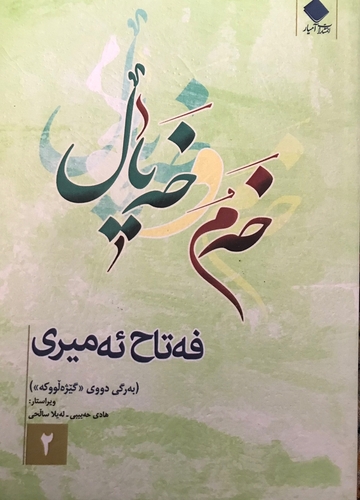
Fattah Amiri has given these two novels as his last works to the Kurdish library. He is now suffering from a fatal disease. What Amiri has done in his novels is very important and needs to be noted. He applied simple and original language in his works. He used classic techniques of narration in his first works and then he moved forward to creating a modern atmosphere in his later works. His novels are genuine and valuable narration.

